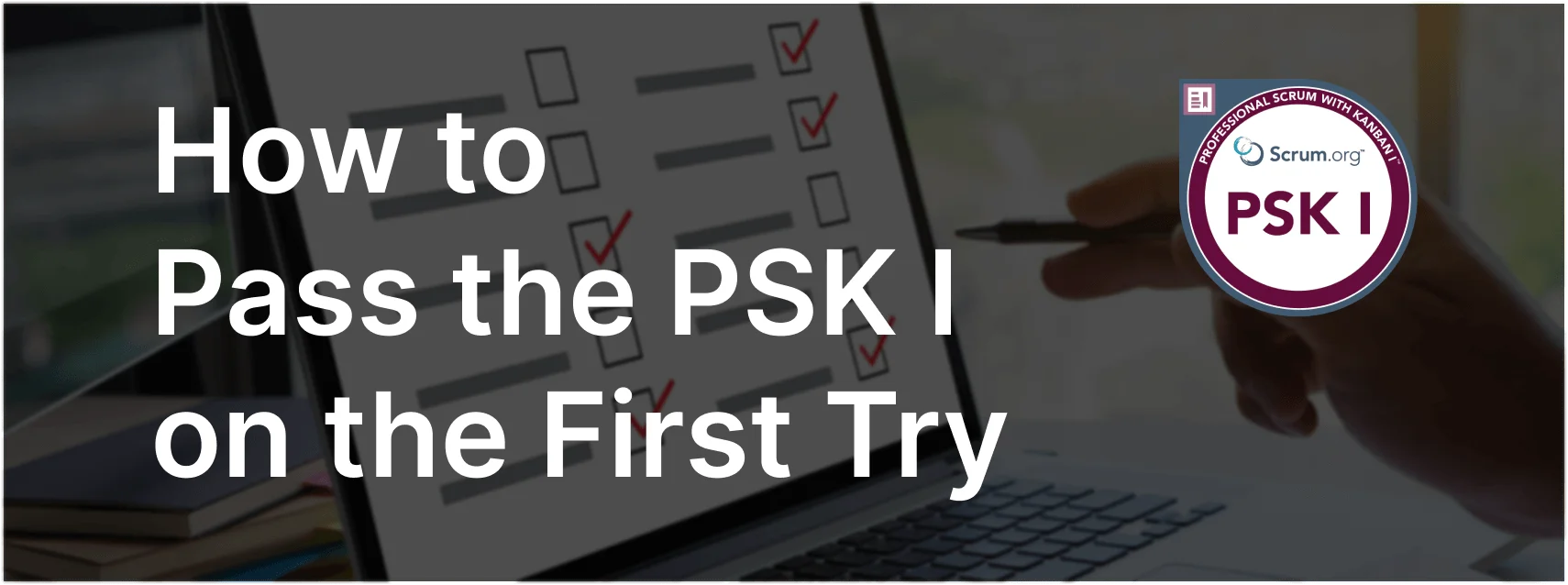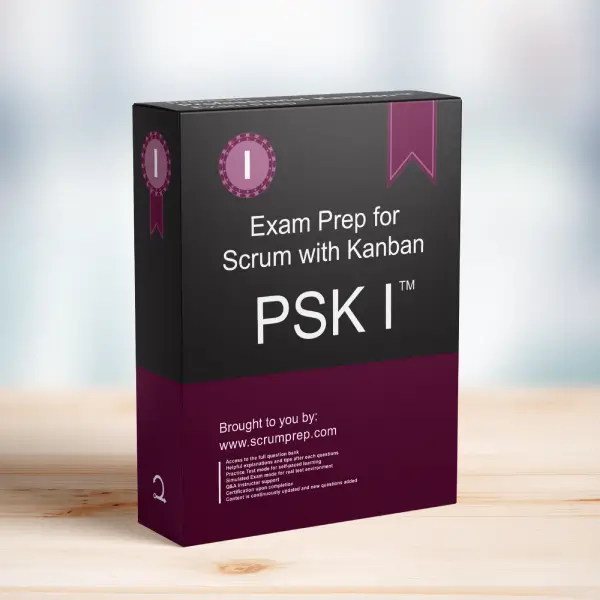Deciding if Kanban is a Valuable Complementary Practice for a Scrum Team
Deciding whether to incorporate Kanban as a complementary practice to Scrum involves understanding the team’s workflow, challenges, and goals. The decision should come from those who are directly involved in and affected by the process.
Exam Question
Who is in the best position to decide if Kanban may be a valuable complementary practice for a Scrum Team?
(choose the best answer)
A. Stakeholders.
B. The Scrum Team.
C. The Scrum Master.
D. The Product Owner.
E. The Developers.
Correct Answer
B. The Scrum Team.
Explanation
Correct Answer
B. The Scrum Team:
The Scrum Team, which includes the Product Owner, Scrum Master, and Developers, is in the best position to decide if Kanban may be a valuable complementary practice. This is because they collectively understand the intricacies of their workflow, challenges, and needs. They can collaboratively assess whether the principles and practices of Kanban would benefit their process and help them achieve their goals.
Why the Other Options Are Less Effective
A. Stakeholders:
While stakeholders provide valuable input and have a vested interest in the product’s success, they are not directly involved in the day-to-day processes and workflow of the Scrum Team. They may not have the detailed insight needed to make this decision.
C. The Scrum Master:
The Scrum Master can facilitate discussions and provide guidance on adopting new practices, but the decision should be made by the entire Scrum Team to ensure buy-in and collective understanding.
D. The Product Owner:
The Product Owner represents the interests of the stakeholders and prioritizes the Product Backlog, but like the Scrum Master, they are part of the decision-making process rather than the sole decision-maker.
E. The Developers:
While Developers are critical in understanding the technical aspects and workflow, they alone do not encompass the entire Scrum Team. The decision should be made collectively to ensure all perspectives are considered.
Importance of Collective Decision-Making
- Collaboration: Involving the entire Scrum Team ensures that all perspectives are considered and fosters a sense of shared ownership and commitment.
- Comprehensive Understanding: The team can collectively assess the benefits and challenges of integrating Kanban practices into their existing Scrum framework.
- Buy-In and Adoption: When the entire team is involved in the decision, there is greater buy-in and smoother implementation of the new practices.
Effective Practices for Evaluating Kanban Integration
- Team Discussions: Facilitate open discussions within the Scrum Team to explore the potential benefits and challenges of Kanban.
- Pilot Implementation: Consider running a pilot to test how Kanban practices impact the workflow and productivity before full-scale adoption.
- Continuous Feedback: Gather feedback from all team members to continuously refine and improve the integration of Kanban practices.
Relevance to the PSK I Exam
Understanding who should decide on integrating Kanban practices is crucial for the PSK I exam. It demonstrates knowledge of team dynamics and the importance of collective decision-making in Agile practices.
Key Takeaways
- The Scrum Team, as a whole, is in the best position to decide if Kanban may be a valuable complementary practice.
- Collective decision-making ensures that all perspectives are considered and fosters buy-in and commitment.
- Effective practices for evaluating Kanban integration include team discussions, pilot implementations, and continuous feedback.
Conclusion
The decision to integrate Kanban as a complementary practice should be made by the entire Scrum Team. This ensures a comprehensive understanding of the potential benefits and challenges and fosters collective ownership and commitment. For more information on preparing for the PSK I exam, visit our Professional Kanban PSK I™ Exam Prep.


